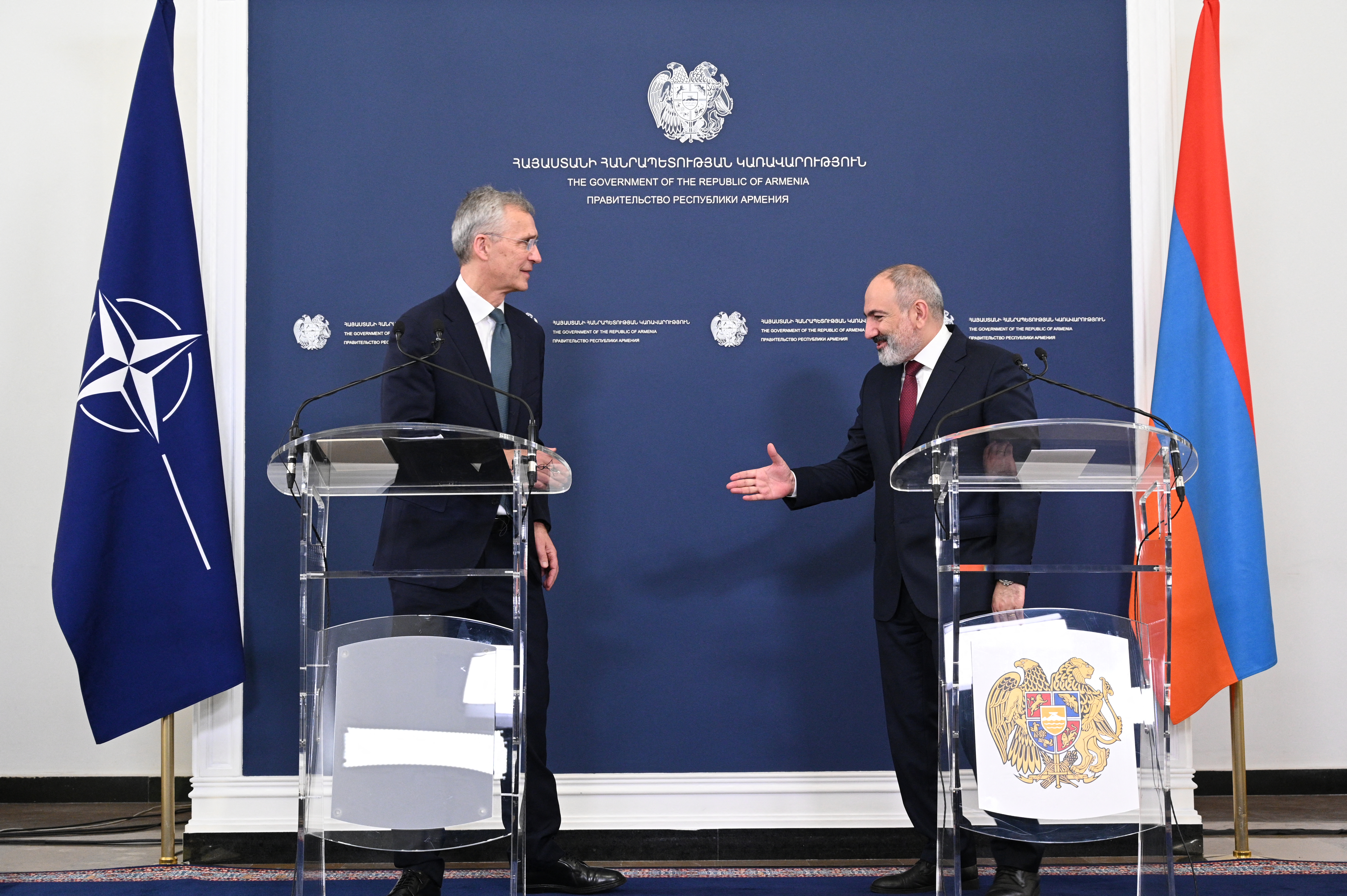Russia’s full-scale invasion of Ukraine has pushed the Black Sea region to the forefront of international attention and forced regional countries to overhaul their own security calculations. The countries of the extended Black Sea region are now undergoing some of the most profound shifts in their foreign, security, and defense policies in decades, with Romania and Armenia at the forefront of this phenomenon.
Notably, the government of Romania, the United States’ staunchest regional ally, has increased its defense spending, pushed ahead with major defense acquisitions from the US, and is building out its strategic partnership with Washington; at the same time, it is looking to strengthen its domestic military industry while also expanding its security cooperation with neighboring Ukraine, Moldova, and Bulgaria. In Armenia, a long-time ally of Russia, the government is orchestrating the country’s foreign policy reorientation toward the West. But to achieve this, Yerevan must first overcome its deeply ingrained strategic dependencies on Russia and decades of regional isolation, both of which represent among the most significant challenges Yerevan has faced since independence.
This panel discussion brings together two of this year’s Black Sea Program Title VIII research fellows to present their findings on the strategic challenges and opportunities facing Armenia and Romania in the context of Russia’s war of aggression. The fellowships are granted by the US State Department for the Middle East Institute’s Black Sea Program.
Speakers
Harry Halem
Title VIII Research Fellow, Black Sea Program, Middle East Institute
Sarkis Karabashian
Title VIII Research Fellow, Black Sea Program, Middle East Institute
Iulia Joja (Moderator)
Director and Senior Fellow, Black Sea Program, Middle East Institute
Extended Speaker Biographies
Harry Halem is a PhD candidate in International Relations at the London School of Economics and Political Science, Senior Fellow at Yorktown Institute, and Senior Fellow in Defence and the London-based Policy Exchange. His dissertation focusses on strategic assessment failures and the character of warfare, with a particular emphasis on the Ukraine War. His other research interests include defence industrial policy, the intellectual history of operational art, and naval strategy. He holds an MA (Hons) in International Relations and Philosophy from the University of St Andrews, and an MSc in Political Theory from the London School of Economics.
Sarkis Karabashian is a graduate student pursuing a Master of Arts degree at Georgetown University's Security Studies Program. With a background in government consulting, Sarkis brings four years of experience from his time at Deloitte, where he worked closely with clients in the defense sector. Additionally, Sarkis serves as a member of the Disaster Assistance Response Team (DART) for Samaritan's Purse, providing vital humanitarian aid in crisis situations around the world. Sarkis has actively volunteered with humanitarian organizations and think tanks in Armenia, where he has contributed to various initiatives aimed at promoting dialogue and cooperation. Through his academic pursuits, advocacy work, and humanitarian efforts, Sarkis is committed to advancing understanding and collaboration between the United States and Armenia.
Iulia-Sabina Joja, Ph.D., is a senior fellow and director of MEI's Black Sea Program. She teaches European security as an adjunct professor at Georgetown University and George Washington University. Her research and teachings focus primarily on European and Black Sea security. Prior to this, Iulia Joja served as an adviser to the Romanian President and as a deputy project manager at NATO Allied Command Transformation in Virginia. She has worked with the Romanian delegation to the United Nations, the European Parliament, and the Romanian Ministry of Foreign Affairs. She was also a visiting scholar at the Center of Military History and Social Sciences of the German Armed Forces in Potsdam/Berlin and a DAAD post-doctoral fellow at the Foreign Policy Institute of the Johns Hopkins School of Advanced International Studies.
(Photo by KAREN MINASYAN/AFP via Getty Images)












